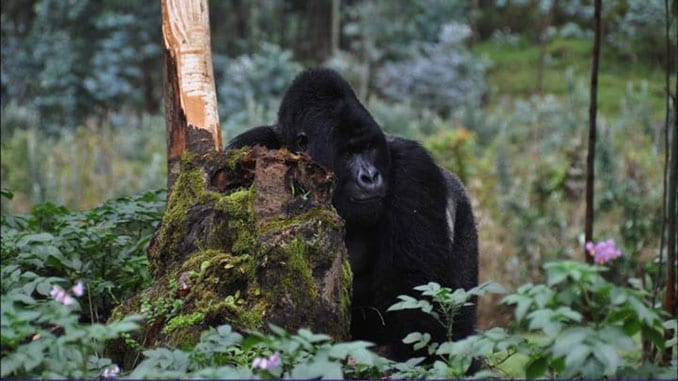
Ebola virus disease (EVD) is a threat to human health, but it also threatens the survival of African great apes. A new review examines the current knowledge about EVD in great apes and documents the link between outbreaks in apes and in humans, mainly via bushmeat consumption.
The authors discuss the need for control strategies, such as vaccination, and describe aspects of primate behavior, virus biology, vaccine composition, and vaccination principles that need to be considered when making management decisions about great ape vaccination.
The team also identified gaps in the understanding of Ebola ecology and highlight surveillance and research that can aid the survival of great apes and reduce human exposure to Ebola virus.
The review’s authors note that vaccination of wild apes would simultaneously reduce the risk of transmission into the human population and the impact of EVD on the endangered great apes.
“Even though theoretically this may sound like a great plan, the elusive nature of great apes, living in dense tropical rainforests, raises serious questions about its feasibility ” said Dr. Fabian Leendertz, senior author of the Mammal Review article.
Additional research, systematic wildlife surveillance, and public education about the risk of bushmeat consumption are needed.
Read more: Ebola in great apes – current knowledge, possibilities for vaccination, and implications for conservation and human health (DOI: 10.1111/mam.12082).
See also:

